As
evangelicals bid to move embassy, ‘Brazil’s Trump’ says he will if elected
At
parliamentary event feting Israel’s 70th birthday, Christian conservatives
propose to join Latin American countries relocating embassies to Jerusalem;
Brazil’s Jews are torn
Main image
by AP/Eraldo Peres
With
considerable fanfare, a small number of Latin American countries have followed
the example of United States President Donald Trump and are transferring their
embassies in Israel from Tel Aviv to Jerusalem.
Guatemala
and Paraguay moved their missions to Jerusalem in recent days with public
celebrations. Honduras has promised to follow.
At the same
time, nearly unnoticed, a session in the Brazilian Chamber of Deputies,
organized by the Evangelical Parliamentary Front — a conservative faith-based
congressional caucus — paid homage to the 70th anniversary of “the Rebirth and
Declaration of the State of Israel.”
At the
event last week, the organizer, deputy Roberto de Lucena, took the microphone
and announced that he had sent a letter to Brazilian president Michel Temer
requesting that Brazil join the growing cadre of countries moving their
embassies to Jerusalem.
According
to Lucena, Israel’s ambassador to Brazil, Yossi Shelley, was surprised by the
announcement.
“In fact,
he was informed [about the request] at the same time that everybody learned
about it during my speech,” Lucena told The Times of Israel via telephone.
“Of course,
the ambassador was pleasantly surprised,” added the evangelical deputy.
Lucena said
that every state should have the right to choose the location of its capital,
and Israel should not be any different.
Brazilian congressmen pose for a photo with Israeli
ambassador to Brazil, Yossi Shelley, second from right, at a session honoring
Israel’s 70th birthday, May 17, 2018. (Chamber of Deputies)
“Ninety
percent of the Brazilian population is made up of Christians, people who have a
[strong] bond with Israel. If the government were to make a referendum, a large
number of Brazilians would vote to move the embassy to Jerusalem due to this
connection, which is more spiritual than political,” said the legislator.
Lucena’s
proposal garnered support from religious leaders present at the congressional
session, mainly from Evangelical and Jewish movements, as well as parliamentary
authorities.
A session on the floor of Brazil’s congress on May
17, 2018, honored Israel’s 70th birthday. (Chamber of Deputies)
In the
Brazilian Chamber of Deputies, a committee focused on Brazil-Israel relations
is heard from often, and boasts a membership of 46 congressmen.
“It is time
for Brazil to position itself and transfer its embassy to Jerusalem because
Brazil is the country with the most descendants of Jews on the planet,” said
local Rabbi Gilberto Ventura at the Israeli Independence Day event.
Paulo de
Tarso, a representative of the Brazilian Apostolic Council, which represents a
major religious denomination in Brazil, said he was happy to see deputies from
the Evangelical front and leaders of various Christian and Jewish segments
“defending the recognition of Jerusalem as the undivided capital of the State
of Israel and the move of the [Brazilian] embassy there.”
Evangelical
Parliamentary Front deputy Roberto de Lucena. (Chamber of
Deputies)
Online support
In addition
to the support shown in the recent congressional session, online petitions are
popping up in social media and websites from different Evangelical and Jewish
movements.
On his
Facebook page, Pastor Joel Angel requests that his followers sign his public petition to sway the Brazilian
government to transfer the embassy to Jerusalem. The Brazil-Israel Zionist
Association (ASBI) has started a similar online petition.
Together,
both lists total around 5,000 signatures, representing a very small margin in a
country with more than 210 million people. The last official census released by
the Brazilian Institute of Geography and Statistics (IBGE) in 2010 showed that
nearly 90 percent of Brazilians are Christian (Roman Catholics represent 65%
and Protestants 22.4%). Jews and Muslims fell among the 2.7% of the population
designated “other religions.”
Political
analysts observe that much of the support Israel receives in Brazil today comes
from Protestant believers.
Evangelical deputy Roberto de Lucena speaks at an
Evangelical church. (Brazilian Chamber of Deputies)
Marta F.
Topel, a researcher and professor of Jewish Studies at the University of São
Paulo, believes this social phenomenon is similar to that of the US, where many
Evangelicals have consistently supported Israel over the years and backed
Trump’s embassy move to Jerusalem.
Topel does
not find it surprising that these groups are doing the same in Brazil.
“In their
eschatology, the creation of the State of Israel, the unification of Jerusalem
and its recognition as the capital, the reconstruction of the Third Temple… For
them, all these will accelerate the return of Jesus,” explained Topel over the
phone.
Topel
pointed out that members of the Jewish community in Brazil hold a wide variety
of political opinions, as in any other country. As a Jewish Brazilian citizen,
Topel admits that she herself is not fond of the Evangelical group in Brazil’s
congress due to their conservative voting patterns, which are often
anti-abortion and anti-LGBTQ rights.
“The
Evangelical group in Brazil has been pejoratively nicknamed B.B.B., which
stands for Bible, bullets and bull,” said Topel.
Besides
displaying a religious dogmatism, some Evangelical deputies support relaxed gun
control laws and corporate farming interests. Topel believes that transferring
the embassy to Jerusalem at the moment is a symbolic provocative act that
benefits nobody.
Evangelical deputy Roberto de Lucena holds the
Israeli flag during a solemn session on the floor of the Brazilian congress
honoring Israel’s 70th birthday, May 17, 2018. (Brazilian Chamber of Deputies)
“The
transfer of the US embassy to Jerusalem should have been delayed until the
important problems have been solved, especially the status of Jerusalem in the
context of a two-state solution or another arrangement related to the city, and
approved and legitimated by both Israel and the Palestinians,” said Topel.
The ‘Brazilian Trump’
This
October, Brazilians will choose a new president.
With former
president Luiz Inacio Lula da Silva in jail and currently out of the
presidential race, recent polls by CNT/MDA released on May 14 showed deputy
Jair Bolsonaro (also belonging to the Evangelical Front) in the lead.
Brazil’s Presidential pre-candidate and conservative
lawmaker Jair Bolsonaro, speaks during a meeting of the “In Defense of
Muncipalities” congress, in Brasilia, Brazil, Wednesday, May 23, 2018. (AP
Photo/Eraldo Peres)
Bolsonaro
was polling at 18.3%, followed by former senator Marina Silva at 11.2%; and the
former minister Ciro Gomes with 9%.
Bolsonaro
is an ultra-conservative right-wing candidate who is often compared to Trump in
Brazil. If elected, the Brazilian deputy promised to follow in Trump’s
footsteps and move the Brazilian embassy to Jerusalem.
“This, in
my opinion, reinforces what our brethren in Israel have a right to — their
[own] territory,” declared Bolsonaro in an interview with the Terça Livre
website.
Israeli ambassador to Brazil, Yossi Shelley, left,
speaking with Roberto de Lucena, center, and another Brazilian congressmen at a
session honoring Israel’s 70th birthday, May 17, 2018. (Chamber of Deputies)
Last April,
the Jewish Confederation of Brazil (CONIB) said that the Jewish community was
confused and divided after Bolsonaro gave a speech in the Club Hebraica in
Rio de Janeiro during which he made pejorative statements about black and
indigenous people, women, gays, refugees and members of NGOs. He also claimed
that every Brazilian should have the right to possess a gun at home.
Last week,
CONIB president Fernando Lottenberg said in an interview that some in the
community support Bolsonaro, but certainly not the majority.
“CONIB is
not partisan; we will not support candidate A, B or C,” Lottenberg added.
In an
interview with BBC Brazil, political scientist Samuel Feldberg said he does not
see Bolsonaro being elected president.
Feldberg
points out, however, that the evangelical sector plays an important role in the
country and may influence Brazilian diplomatic policy.
For
Brazilian diplomat and professor Paulo Roberto de Almeida, religious factors
should not exert pressure on the Brazilian state, specifically in regards to
its foreign policy. Almeida said one example of this is the issue of the
placement of Brazil’s embassy, and the recognition of Jerusalem as the “true
capital” of Israel, despite the city having a special status by the majority of
UN member states.
“Brazil is
proud to have been a sponsor of the creation of the State of Israel in the
famous 1947 UN partition vote, predicting the creation of a Palestinian state
and the ‘neutralization’ of Jerusalem as a common city to various faiths,”
Almeida wrote The Times of Israel via email. “Such interference on public
policy would be… unconstitutional and extremely controversial on the diplomatic
plane.”
Israel’s ambassador to Brazil, Yossi Shelley, was
present at a solemn session on the floor of Brazil’s congress on May 17, 2018,
honored Israel’s 70th birthday. (Chamber of Deputies)
The
professional diplomat explains Brazil would gain nothing as a global diplomatic
player for supporting the embassy transference to Jerusalem.
“It would
do nothing to consolidate Brazil’s role as an impartial partner of all actors
and protagonists of Middle Eastern dramas when its traditional stance has been
precisely to ‘export’ calls for dialogue and a peaceful solution to political
and diplomatic controversies,” said Almeida.
Besides, he
said, “importing the controversy” could complicate daily life inside Brazil, “a
country that traditionally receives immigrants of all creeds and racial
origins.”
The ‘Jerusalem Plan’
In the
1960s Israeli diplomats embarked on an organized effort to convince countries
to transfer their embassies to Jerusalem.
The
strategy was called the “Jerusalem Plan,” according to new research released
this spring by Jonathan Grossman, a post-doctoral fellow at the Institute for
Israel Studies of the University of Texas at Austin.
“During the
1960s, 10 out of 14 Latin American countries had their embassies in Jerusalem.
The problem was with the ‘Big Three’ — Brazil, Argentina and Mexico — that
remained in Tel Aviv. Israel hoped that if they convinced one of them, other
countries would follow. And Brazil was not only the biggest country in Latin
America, but the biggest Catholic country in the world,” Grossman told The
Times of Israel over the phone.
The Brazilian house of congress. (Brazilian Chamber
of Deputies)
Grossman’s
study indicates communications and telegrams were exchanged in 1963 affirming
that left-wing Brazilian president João Goulart was ready to agree with the
embassy move to Jerusalem, but faced strong opposition within the professional
diplomats of Itamaraty Palace.
“Basically
they were right, because Brazil would get nothing. Israel was giving technical
assistance that Brazil really valued in agricultural projects. It was all nice,
but small scale. If Brazil would accept the transfer of the embassy, they would
risk confronting the Arab world, the Arab diaspora inside Brazil, many Third
World countries, besides upsetting the Catholic Church,” explained Grossman.
In his
essay, Grossman highlights how the Jewish Diaspora in Brazil exerted
considerable influence over their government, acting as “unofficial diplomats…
who could legitimately promote and negotiate Israeli interests to their
government with the latter’s consent.”
This time,
the Evangelical groups seem to be taking their own initiative. Israeli diplomats now have little need to lobby
themselves.

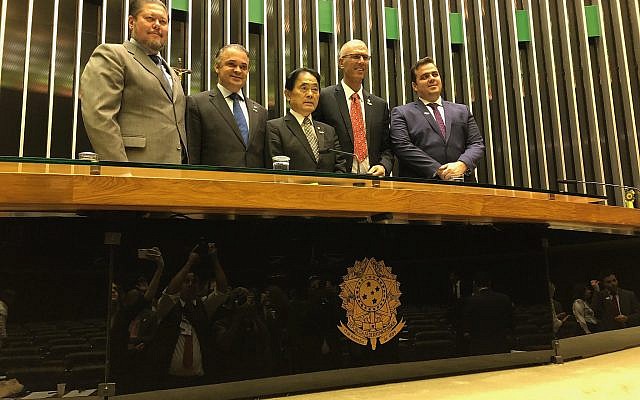
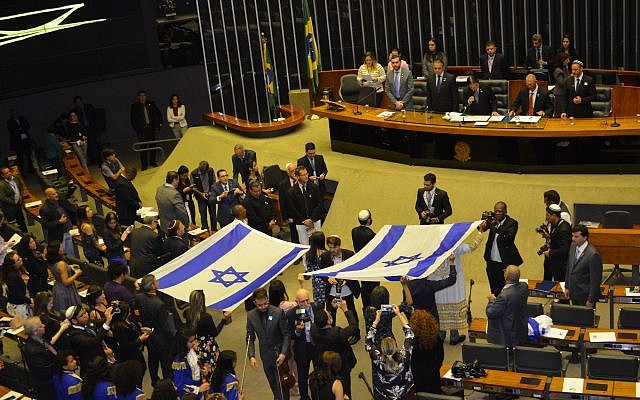
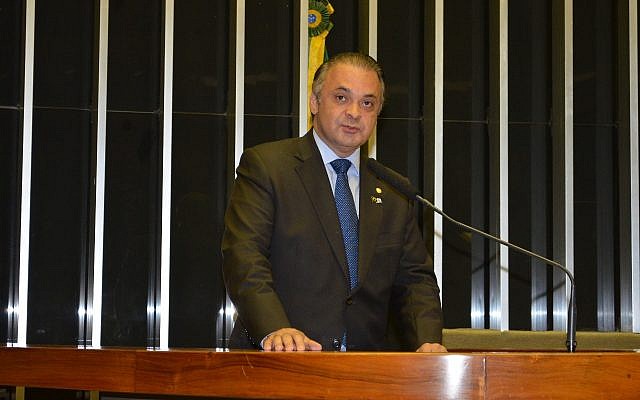
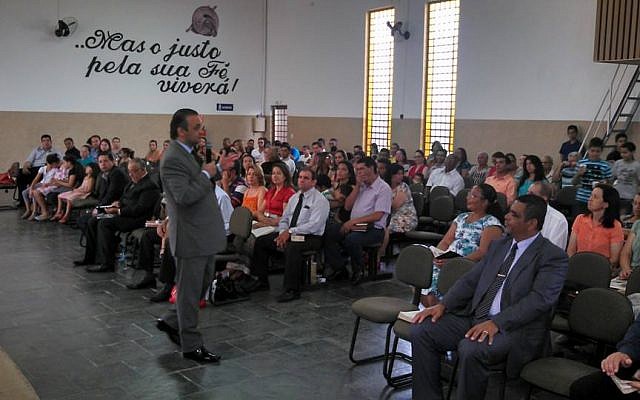
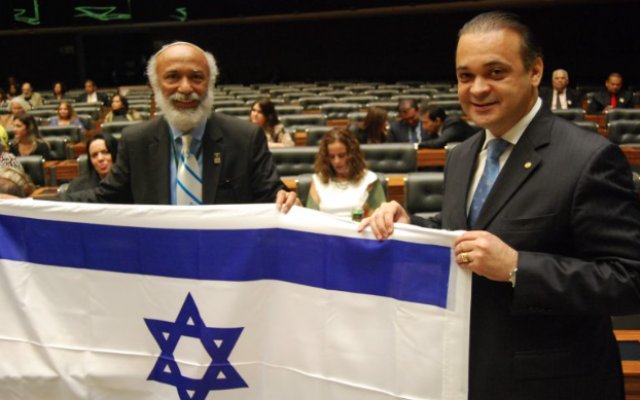

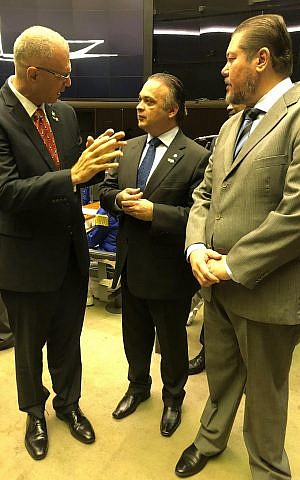

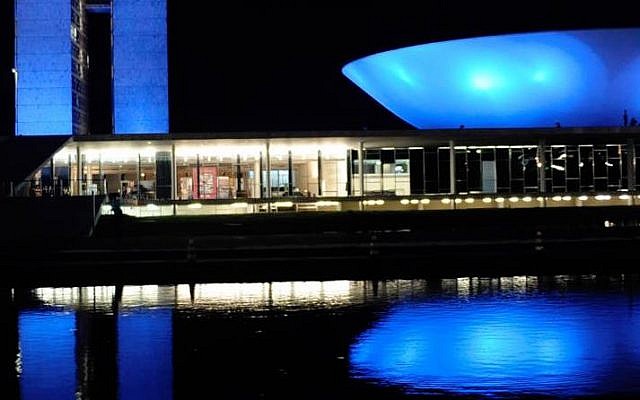











/https://www.niagarafallsreview.ca/content/dam/thestar/news/canada/2021/09/25/huawei-executive-meng-wanzhou-receives-warm-welcome-upon-return-to-china/_1_meng_wanzhou_2.jpg)



No comments:
Post a Comment
Note: Only a member of this blog may post a comment.